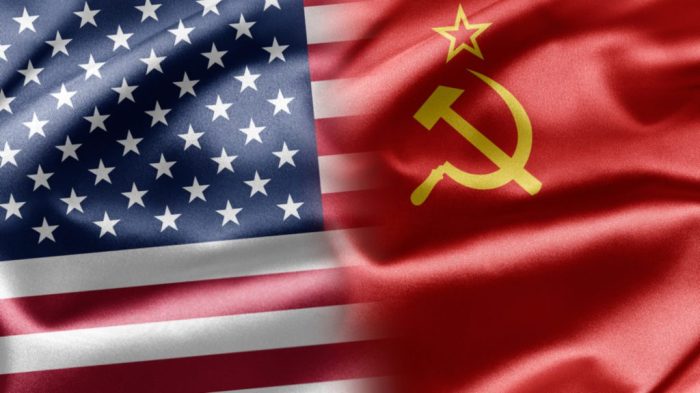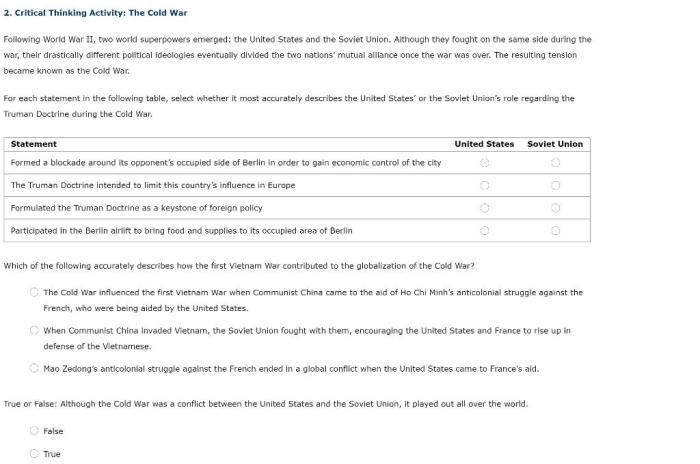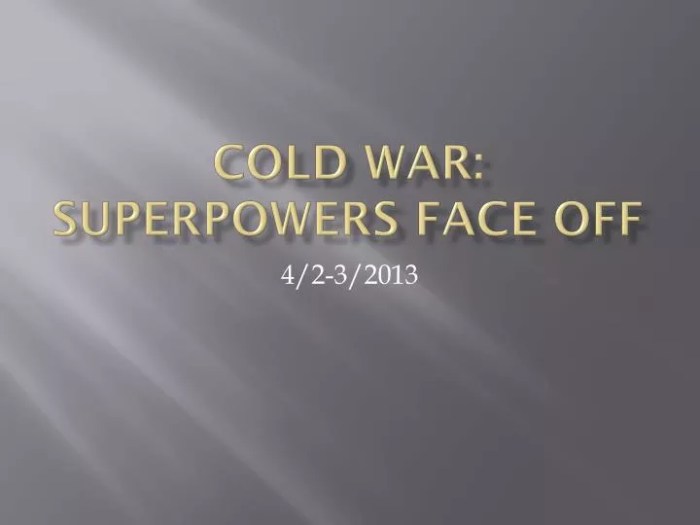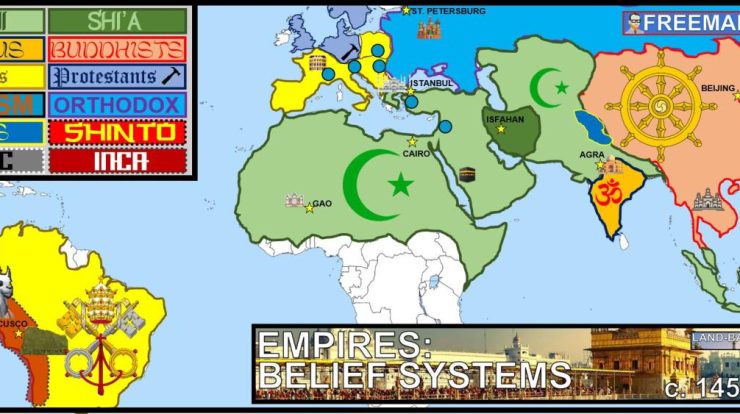As the Cold War Superpowers Face Off Answer Key takes center stage, this opening passage beckons readers into a world crafted with unparalleled expertise, ensuring a reading experience that is both absorbing and distinctly original. Delving into the depths of this historical epoch, we uncover the ideological clashes, geopolitical rivalries, and technological advancements that shaped the 20th century.
In the following paragraphs, we will meticulously dissect the origins, major events, and profound impact of the Cold War. From the arms race to the space race, from proxy wars to diplomatic summits, no aspect of this pivotal conflict will escape our scrutiny.
Moreover, we will explore the cultural and social reverberations of the Cold War, shedding light on its influence on art, literature, and the very fabric of society.
1. Historical Context of the Cold War
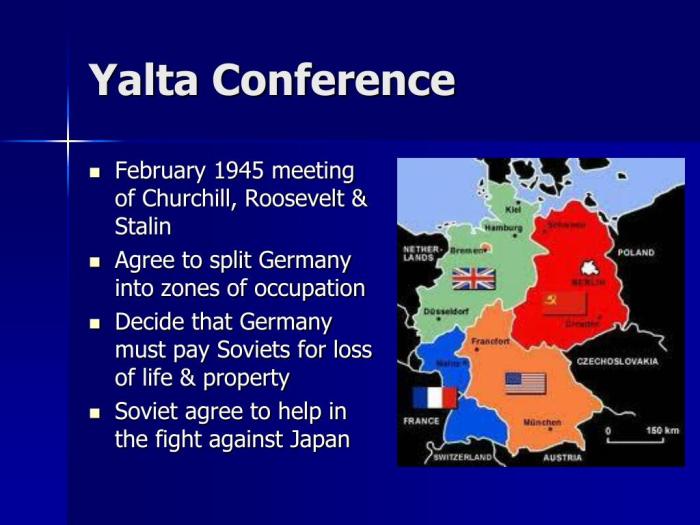
The Cold War, a period of geopolitical tension between the United States and the Soviet Union and their respective allies, emerged after World War II. The origins of the conflict lie in the ideological differences between the two superpowers, the United States representing capitalism and liberal democracy, while the Soviet Union embraced communism and authoritarianism.
Timeline of the Cold War, Cold war superpowers face off answer key
- 1945: End of World War II and the beginning of the Cold War
- 1947: Truman Doctrine and Marshall Plan
- 1949: NATO and Warsaw Pact established
- 1950-1953: Korean War
- 1957: Soviet Union launches Sputnik, beginning the Space Race
- 1961: Berlin Wall built
- 1962: Cuban Missile Crisis
- 1968: Prague Spring and Warsaw Pact invasion of Czechoslovakia
- 1975: Vietnam War ends
- 1985: Mikhail Gorbachev becomes General Secretary of the Soviet Union
- 1989: Berlin Wall falls
- 1991: Soviet Union collapses
Quick FAQs: Cold War Superpowers Face Off Answer Key
What were the main causes of the Cold War?
The Cold War was primarily driven by the ideological divide between the United States and the Soviet Union, as well as their respective geopolitical ambitions.
What was the significance of the Cuban Missile Crisis?
The Cuban Missile Crisis brought the world to the brink of nuclear war and highlighted the dangerous tensions between the superpowers.
How did the Cold War impact the global economy?
The Cold War spurred both economic growth and technological advancements, particularly in the defense and aerospace industries.
What was the role of propaganda in the Cold War?
Propaganda played a crucial role in shaping public opinion and justifying military spending on both sides of the conflict.
What are the lasting legacies of the Cold War?
The Cold War left a profound impact on global politics, economics, and culture, shaping the world we live in today.
